“Important update: Guilford College is now a refuge!” reads the banner on everycampusarefuge.org.
Diya Abdo, associate professor of English and founder of Every Campus a Refuge, issued a global call for every college campus to host one refugee family. Whether you are aware of it or not, Guilford is currently hosting both a family and an individual.
Because of the sensitivity of the situation, names, locations and other details will not be mentioned in this article.
Guilford partnered with refugee resettling agency Church World Service, to secure a spot for incoming refugees. Though the College has been housing an individual for some time now, the family has been in North Carolina for just under two months. Abdo has been delighted by Guilford’s response in welcoming the family to Greensboro.
“Folks want to help out however they can,” said Abdo in an email interview. “The response from Guilford alumni has also been heartening and highly effective.”
On March 20, a collaboration with Deep Roots Market was made possible through alumni. That day, five percent of Deep Roots’ local produce proceeds went to support Every Campus a Refuge.
Recently, students planted an herb and lettuce garden in the family’s front yard. According to Latiqua Hardy, volunteer coordinator for Church World Service, it is these little things that make the family feel part of the community and at home.
“ECAR volunteers have helped to bring joy during the hardest months of transition for the newcomers,” said Hardy in an email interview.
Along with joy, Guilford volunteers provide groceries, translation, soccer games and transportation.
“It’s great that Guilford is stepping up and providing a refuge for those who need it,” said first-year and international student Shea Orth-Moore. “I love the idea of helping someone assimilate to a new culture because I certainly had to assimilate.”
Volunteers have found ways to build relationships even without traditional means of communicating.
“The power of playing soccer is (that) you don’t have to speak the language to play the game,” said Orth-Moore. “You can get past the language barrier without making it a barrier.”
To navigate other barriers, ECAR partnered with the Center for Principled Problem Solving. Director of Engaged Teaching Jennie Knight highlighted the value ECAR adds to Guilford and the progress made thus far.
“The family is doing well: learning English, growing a garden and progressing toward employment,” she said. “The first newcomer who arrived here has been employed for two months and is thriving.”
The revolutionary idea of ECAR has sparked the interest of universities in the country and beyond. Over 41 colleges in the U.S. and Canada are undergoing the process to become refuges for new arrivals. A “Refugee Toolkit for Universities” will soon be released by the U.S. State Department, encouraging other colleges to adopt the thriving project.
Despite the growth and success of ECAR, states are reluctant to accept refugees. A recent poll taken by ABC News revealed that 61 percent of North Carolinians agreed with Gov. Pat McCrory’s appeal to no longer allow Syrian refugees into North Carolina.
In the face of such results, Guilford stands in the minority, yet history has proven that this is Guilford’s legacy. Since its involvement in the Underground Railroad and admitting Japanese students during World War II, Guilford has often been in the minority.
“Every Campus a Refuge has been an opportunity for Guilford to live out our core values,” said Knight. “In the face of a larger political environment of Islamophobia, (ECAR) has raised Guilford up as a national example of radical hospitality, standing against Islamophobia.”
Every Campus a Refuge is a beacon for both college campuses and refugees searching for sanctuary.

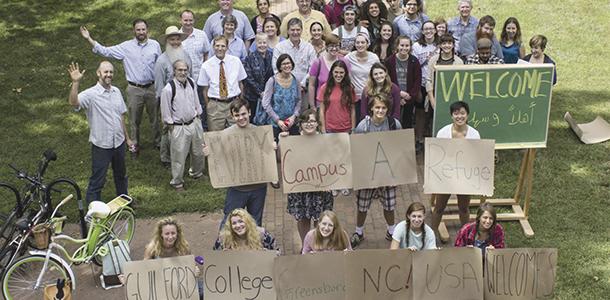


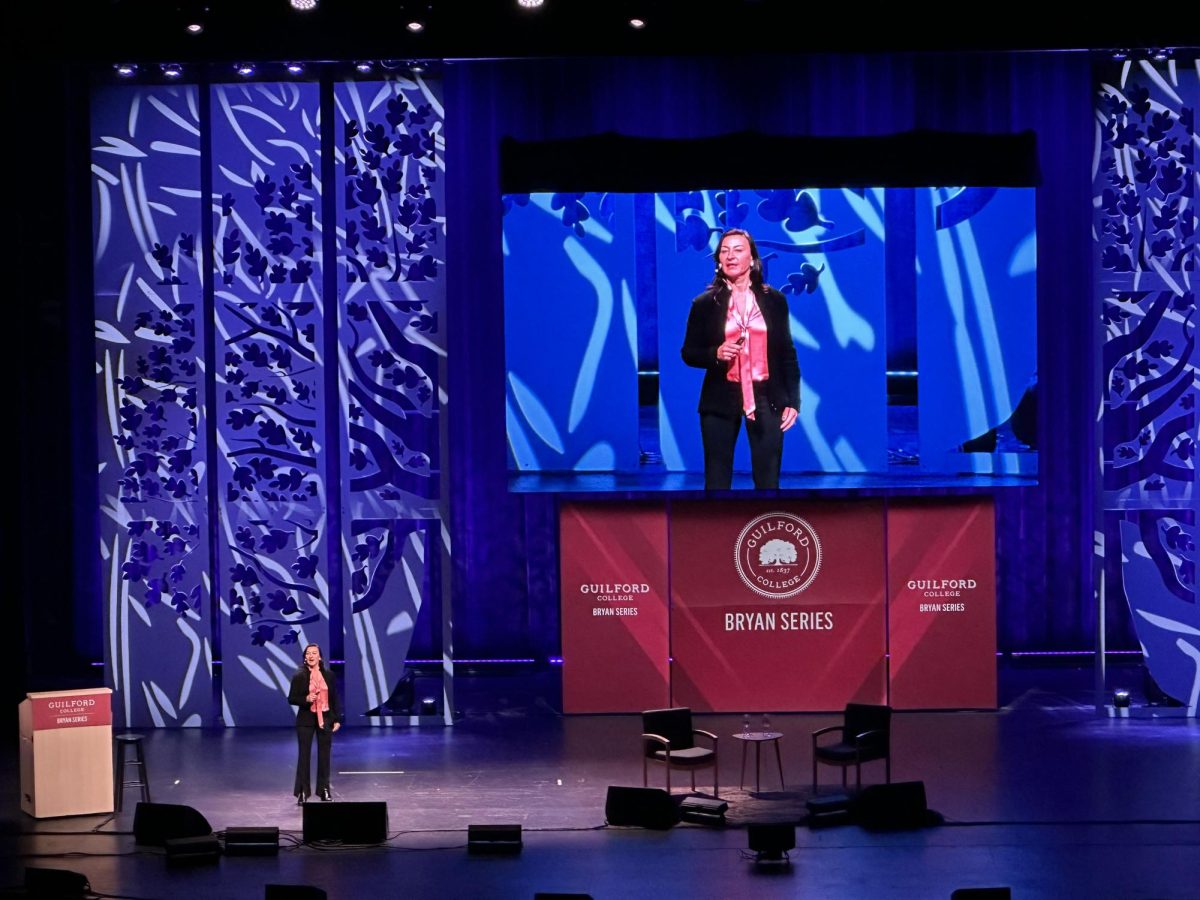
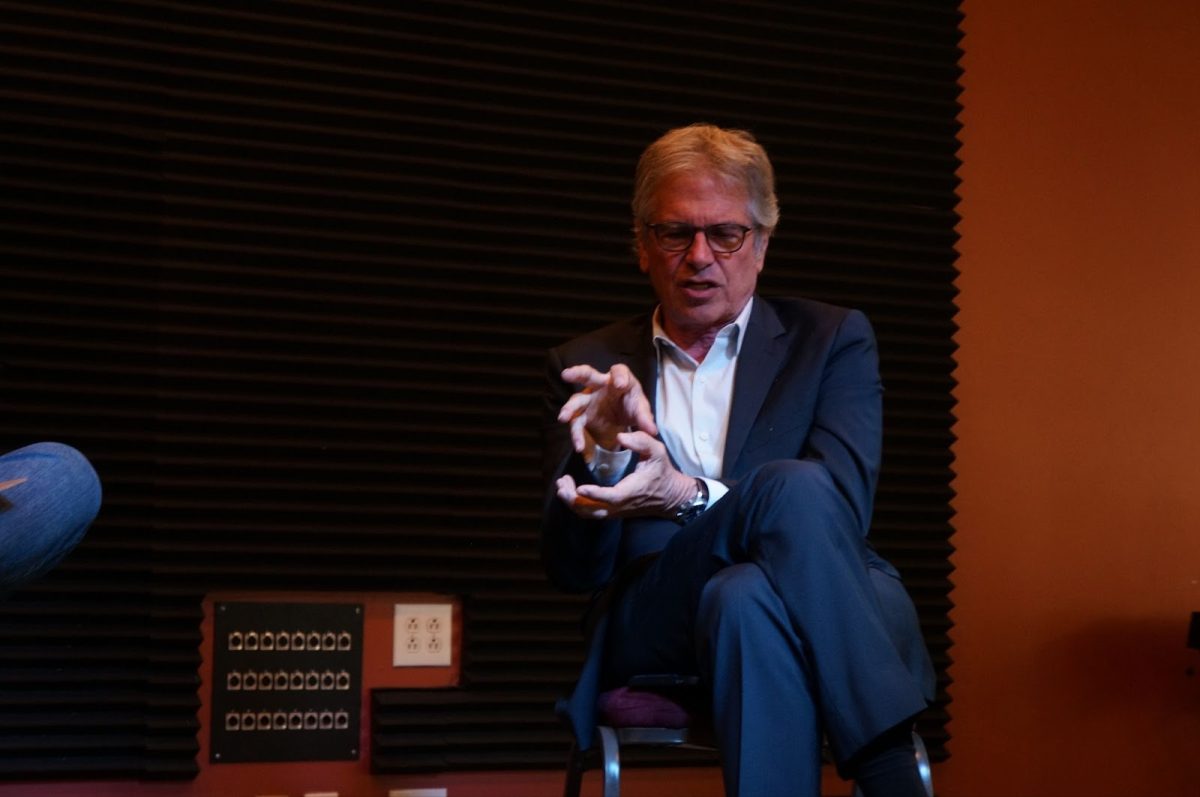
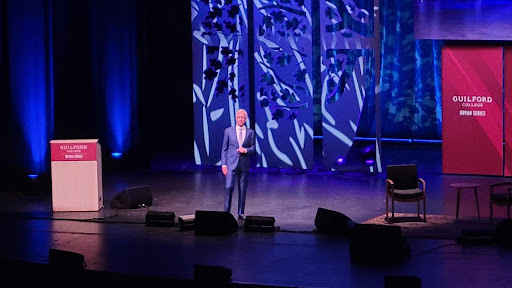
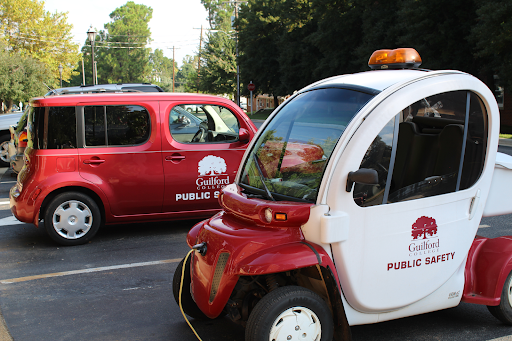



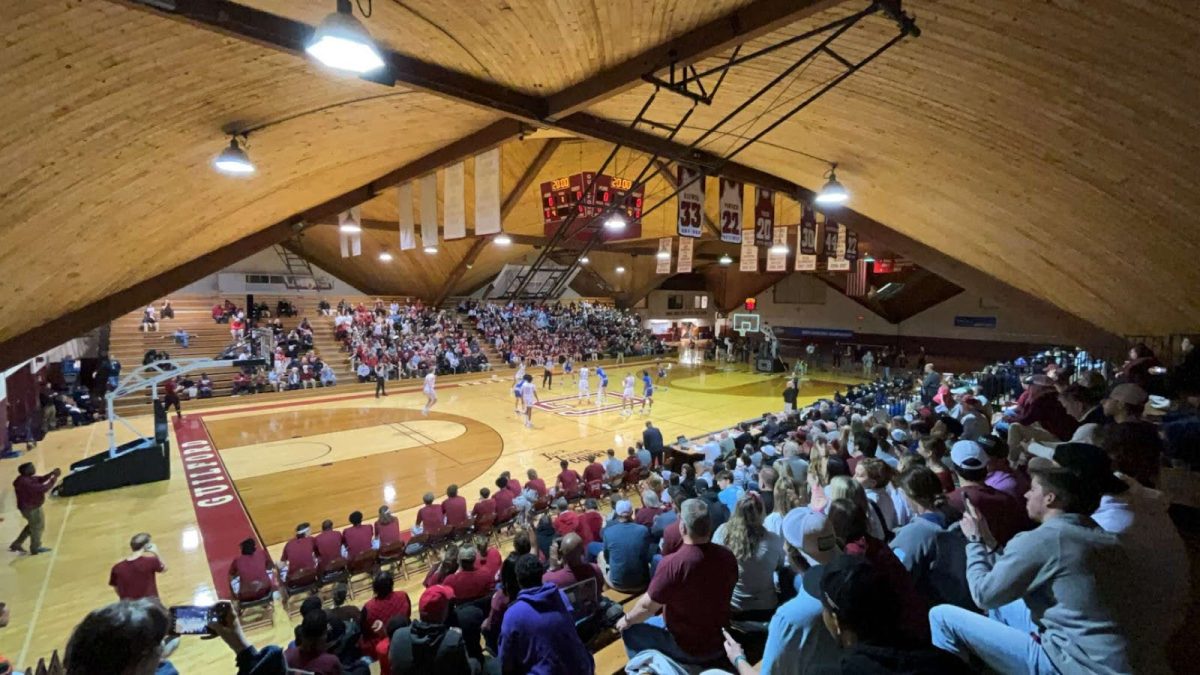
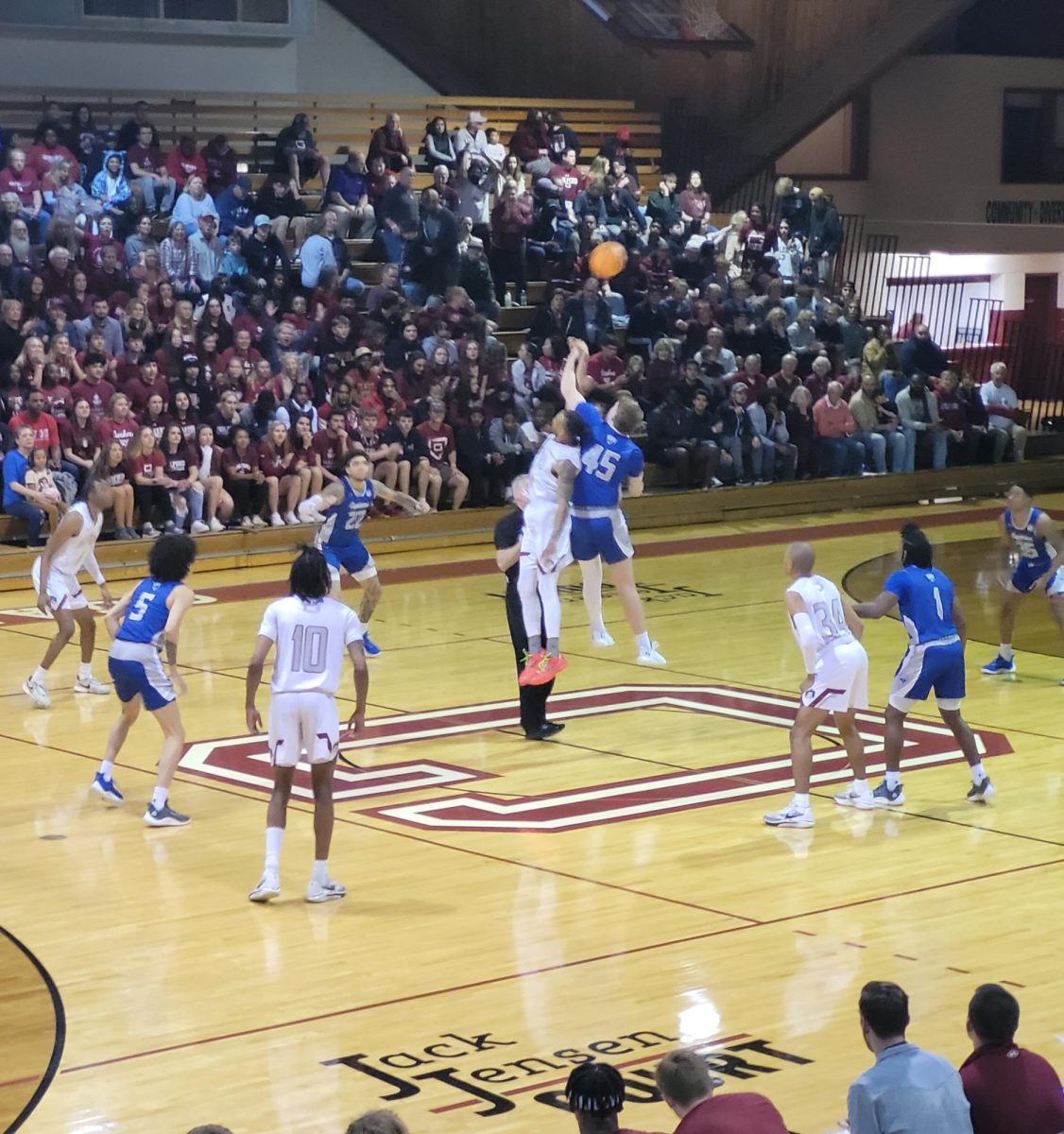

Mark Justad • May 9, 2016 at 1:28 pm
Thank you to all of our ECAR faculty, student, staff and community volunteers for helping Guilford College practice a form of radical hospitality desperately needed in today’s world. It is only one piece of a complicated set of puzzles, of course, but just imagine if dozens of campuses joined in!
Please keep your eyes open for ways to engage and learn about refugee and immigrant and immigration issues as Professor Abdo directs the ECAR effort going forward.
Mark Justad, Director
Guilford Center for Principled Problem Solving
Andrew J Young, Volunteer Training Coordinator, Bonner Center for Community Service and Learning • May 2, 2016 at 4:46 pm
“Important update: Guilford College is now a refuge!”
What a wonderful statement that rings like music in the ears of all supporters of newcomers and believers in a just society. But to be accurate, Guilford has been a host for decades. In a more recent example, we are proudly home to several refugees who live on campus and study here. More commute.
Depending on how you shape your world and define your politics and identity, we are also struggling with defining Who We Are. Among the many terms we hear are “refugee”, “immigrant”, “asylum seeker”, “legal”, “illegal” and “undocumented”. We also hear about “Dreamers” and “Golden Door”, DACA and DAPA. We also hear the term “economic immigrant”. And of course, “first-generation”, “second-generation”.
So, Who Are We? At Guilford, I have met them all, and more. The Biggest Conversation We’ve Never Had On Campus is who’s welcome and who is not? Who is embraced and who is ignored? Who can speak out freely and who can’t, because of the sensitivity of their status? Unless you know, usually these stories are invisible. Until we have the Big Conversation, we don’t really know who we are.